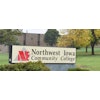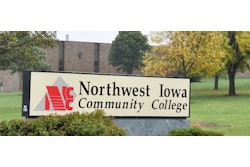In 2018, Dr. Audrey Jaeger and Dr. Monique N. Colclough hatched an idea — what if they could develop professional learning environments easily accessible for all faculty in North Carolina’s community colleges, and what if that development could move the needle on student success?
 Dr. Audrey Jaeger, professor of community college education at North Carolina State University and director of the Belk Center for Community College Leadership and Research.
Dr. Audrey Jaeger, professor of community college education at North Carolina State University and director of the Belk Center for Community College Leadership and Research.
“In 2018, I was watching and noticing that, while we were seeing gains in student success, it wasn’t at a steep, accelerated rate. We were not reducing equity gaps,” said Stout, recalling her Dallas Herring Lecture, an annual event at the Belk Center. “I was also noticing that [very few] interventions or strategies for redesign were systematic and touching the classroom. Very few faculty were engaged in a deep way with the work, using their own data to think about pedagogy and updates that could move course success in a certain way.”
Stout’s speech hit Jaeger and Colclough in their hearts. They realized that the kind of professional development needed to engage faculty would be very difficult to achieve in smaller, rural and less-resourced institutions like some of the 58 community colleges in North Carolina.
“The majority of time spent at or with community colleges is in the classroom, and we know that’s the area we have the opportunity to catalyze change,” said Jaeger.
Jaeger and Colclough began a case study that has blossomed into a full program, run by and for faculty, that’s creating peer communities, meeting regional needs, and moving the needle on student retention, persistence, and graduation rates: The North Carolina Teaching and Learning Hubs.
The Belk Center and ATD recently released a guidebook explaining how and why they created these Hubs and what their results have been. They said they believe their experiences could be a model for other community college systems across the country.
“North Carolina is the only state in the country doing this. We’re the third largest community college system in the country with a great diversity of small, medium, and large institutions, from really rural to really urban — we’re a microcosm for community colleges across the country,” said Jaeger. “Good ideas are good ideas. We think we have a model that can be replicated, and provide capacity for rural, under-resourced institutions in the areas of professional development.”
In just two years, faculty who have attended one or more of the free professional development offerings at the four, regionally diverse Hubs have reached over 100,000 students. And data show that students who take classes from a faculty member who has attended a course are more likely to persist. Course-pass rates are two percentage points higher after faculty have attended a Hub course. Most recent data from a soon-to-be-released report from the Belk Center predict a 6.6% increased likelihood of fall-to-spring persistence for each student taking a course by a Hub-trained faculty member. That trend is experienced across all student groups, not just in certain demographics.
“No matter how you run the models, the outcomes are for all students,” said Jaeger. “This serves whoever the community college student is in the classroom, and in general, community college students are far more diverse than [their four-year counterparts].”
The Hubs are sustained through a multilevel partnership across county- and state-lines, supported by ATD, the NC Student Success Center which provides instant data on participating faculty and their students, and DVP Praxis, an evaluation and consulting firm for post-secondary institutions that is able to provide assessment on the Hub data.
 Dr. Monique B. Colclough, director of Programs and Initiatives at the Belk Center for Community College Leadership and Research.
Dr. Monique B. Colclough, director of Programs and Initiatives at the Belk Center for Community College Leadership and Research.
“One of my loves is training and making sure that, not only do the new faculty know what they’re doing, but that the more seasoned faculty members are able to keep up with what’s going on, trends, what’s helping, and how students are changing,” said Redfield. “Across all the [Hubs], we deal with AI, universal design for learning and retention of students, how do you talk to your students, how are you inclusive and welcoming. But it does depend on what each community college in our region tells us they most need.”
Some colleges continue their own professional development on their campuses, while others have made the Hubs their go-to source. While some lectures outsource instructors, the majority of courses are led by fellow state community college teachers. Redfield said this helps keep the instruction relevant to the faculty in attendance, who can know right away what they’re learning works in North Carolina classrooms.
The Hubs also communicate with each other and retain all their lectures online for access at a later date. Jaeger said one of the few bright sides to developing a program like this during the COVID-19 pandemic was the new ability to transfer learning to a virtual environment, and Colclough said Hub co-directors have been able to build a cross-state peer community that spreads questions and great ideas.
Jaeger and Colclough survey faculty after course attendance, and they have found that faculty don’t wait to implement their learning in their classrooms and pedagogy. They start making improvements immediately, which means student success can be almost instantly impacted.
“We’re faculty led, driven, and focused. We’re doing it because of them and with them. They’re in the classroom right now, teaching,” said Jaeger. “They’re so intentional about creating sessions that are helpful to colleagues, part of a larger question, ‘How do I become an excellent teacher?’ It’s why we do what we do.”
Liann Herder can be reached at lherder@diverseeducation.com.
















